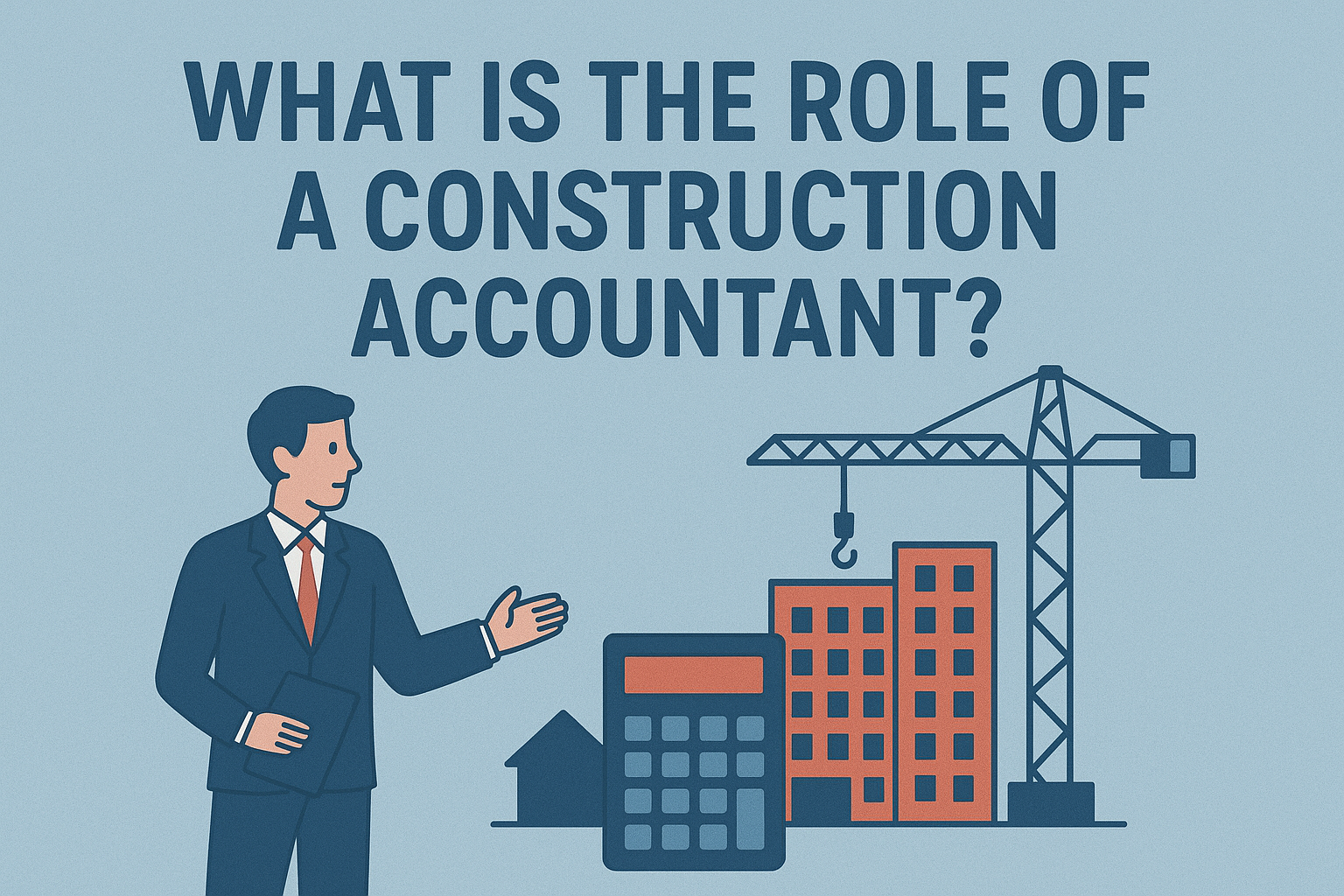In the dynamic world of construction, where complex projects, tight budgets, and regulatory compliance are the norm, the role of a construction accountant is indispensable. Construction accountants play a vital role in managing the financial aspects of construction projects, ensuring that financial resources are allocated efficiently, and regulatory requirements are met. This article explores the key responsibilities and functions of a construction accountant in the construction industry.
1. Financial Planning and Budgeting:
- Collaborates with project managers to create realistic budgets for construction projects.
- Involves forecasting expenses, analyzing historical data, and considering potential risks to ensure accurate financial plans.
2. Cost Estimation and Control:
- Develops accurate cost estimates at various project stages to guide budgeting.
- Monitors costs closely, comparing them to budgeted amounts and addressing cost overruns promptly.
3. Financial Reporting:
- Generates timely and accurate financial statements, including income statements, balance sheets, and cash flow statements.
- Provides stakeholders with a clear snapshot of the project’s financial health.
4. Compliance and Regulatory Oversight:
- Ensures that financial practices align with industry standards and legal guidelines.
- Stays updated on tax laws, accounting principles, and financial regulations to minimize legal risks.
5. Contractual and Risk Management:
- Reviews and understands complex contracts and agreements to ensure compliance.
- Identifies and addresses financial risks, contributing to overall risk management in construction projects.
6. Cash Flow Management:
- Monitors cash inflows and outflows, ensuring sufficient liquidity to meet financial obligations.
- Manages payments to subcontractors, suppliers, and other project-related expenses for optimal cash flow.
7. Collaboration with Project Teams:
- Communicates effectively and collaborates with project managers, engineers, and stakeholders.
- Gathers accurate financial data and understands project dynamics for informed decision-making.
8. Audit Preparation:
- Prepares financial documentation for audits, ensuring transparency and compliance.
- Works with auditors to provide necessary information and address any financial concerns.
9. Financial Analysis:
- Conducts financial analysis to identify trends, variances, and areas for improvement.
- Provides insights to project teams for better financial decision-making.
10. Continuous Improvement:
- Recommends and implements improvements to financial processes and controls.
- Stay updated on industry best practices to enhance the efficiency of financial operations in construction projects.
Read Also: How to Hire an Accountant for a Small Business?
In summary, a construction accountant plays a crucial role in navigating the financial intricacies of construction projects. From financial planning and compliance to risk management and collaboration with project teams, their expertise contributes significantly to the overall success and sustainability of construction endeavors.



Share this Article